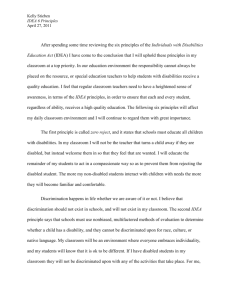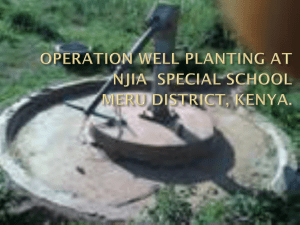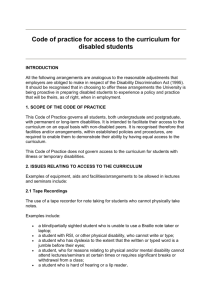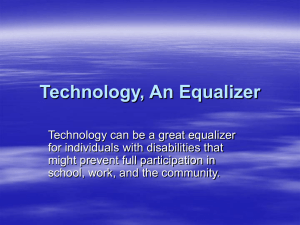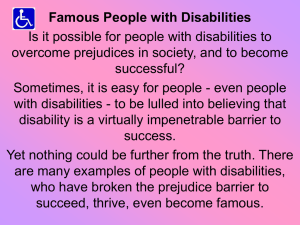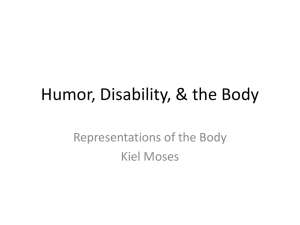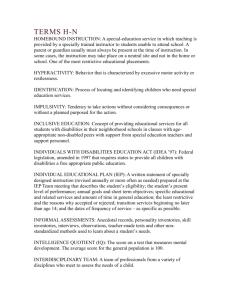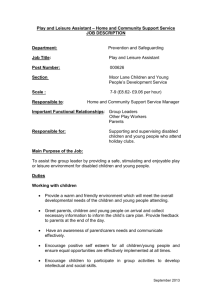File - GNLU Centre for Law and Society
advertisement
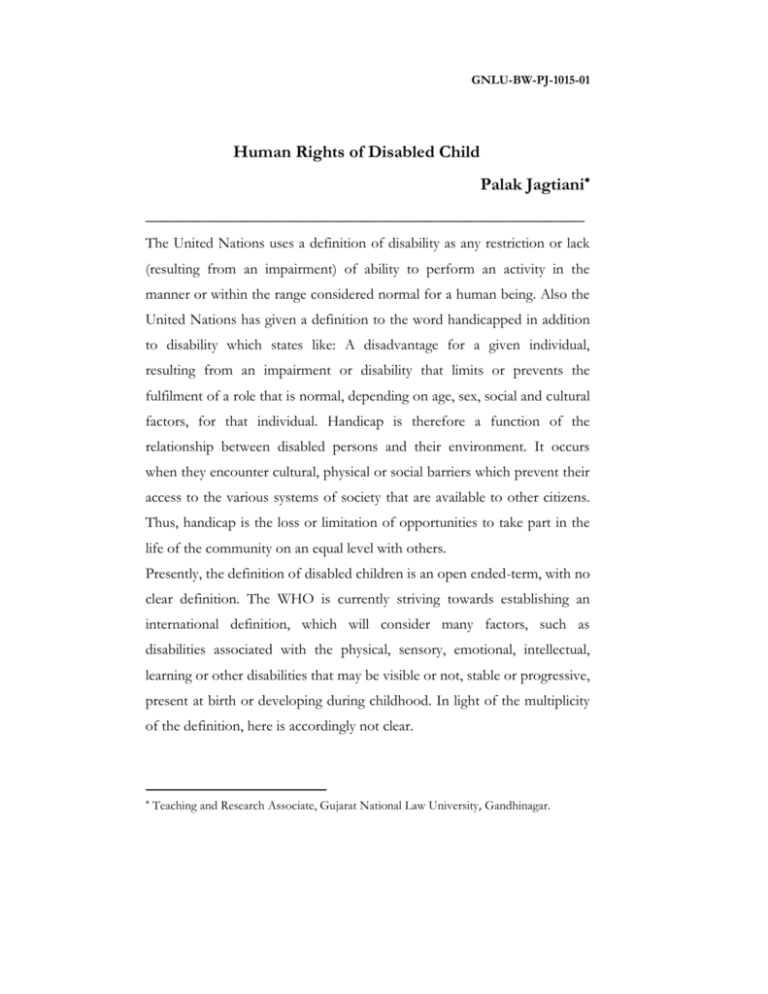
GNLU-BW-PJ-1015-01 Human Rights of Disabled Child Palak Jagtiani __________________________________________________ The United Nations uses a definition of disability as any restriction or lack (resulting from an impairment) of ability to perform an activity in the manner or within the range considered normal for a human being. Also the United Nations has given a definition to the word handicapped in addition to disability which states like: A disadvantage for a given individual, resulting from an impairment or disability that limits or prevents the fulfilment of a role that is normal, depending on age, sex, social and cultural factors, for that individual. Handicap is therefore a function of the relationship between disabled persons and their environment. It occurs when they encounter cultural, physical or social barriers which prevent their access to the various systems of society that are available to other citizens. Thus, handicap is the loss or limitation of opportunities to take part in the life of the community on an equal level with others. Presently, the definition of disabled children is an open ended-term, with no clear definition. The WHO is currently striving towards establishing an international definition, which will consider many factors, such as disabilities associated with the physical, sensory, emotional, intellectual, learning or other disabilities that may be visible or not, stable or progressive, present at birth or developing during childhood. In light of the multiplicity of the definition, here is accordingly not clear. Teaching and Research Associate, Gujarat National Law University, Gandhinagar. GNLU-BW-PJ-1015-01 In India children with disabilities mainly comes under the purview of the Ministry of Social Justice & Empowerment. Some of the issues are dealt with by the health ministry. But no single ministry has been assigned the protection of these children, which leads to varying data about occurrence of disability amongst children. In India 1.67% of the 0-19 population has a disability. 35.29% of all people living with disabilities are children. Other estimates say that India has 12 million children living with disabilities. Only 1% of children with disabilities have access to school and one third of most disabilities are preventable. Under-nutrition is a severe problem with children who suffer from cerebral palsy. In India 80% of children with disabilities will not survive past age forty.1 RIGHTS OF THE DISABLED CHILDREN Disabled children and Human Rights Disabled children have the human right to be included in their local community and to do the kinds of things that non-disabled children do. They have the right to support to help them do this. They have the human right to take part in play and leisure activities and to freely express themselves in cultural and artistic ways. They have the right to equal access to cultural, artistic, recreational and leisure activities. The Health of Families of Children with Disabilities: Report from a National Roundtable. Availabe at http://www.canchild.ca/en/childrenfamilies/resources/health_families_children_disabiliti es_national_roundtable.pdf 1 GNLU-BW-PJ-1015-01 Disabled children have the human right to live with their parents unless this is not in their best interests. They have the right to services to make it possible for their families to look after them. Further disabled children have the human right to express their views and for these to be taken into account. They also have the right to freedom of expression. Disabled children who spend time away from home because they need care or treatment have the human right to a review of the placement at regular intervals. Disabled children who do not live with their families, temporarily or permanently, have the human right to special protection and assistance which takes account of their ethnic, religious, cultural and linguistic background. Disabled children have the right to participate in the same kind of leisure activities as their non-disabled children:This is a human right: it is a right that disabled children have by virtue of the fact that they are human beings, that they are the sameas any other child. It is a universalright and is in fact enshrined in the United Nations Convention on the Rights of the Child, Article 23, which says: 'States Parties recognise that a mentally or physically disabled child should enjoy a full and decent life, in conditions which ensure dignity, promote self-reliance, and facilitate the child's active participation in the community.'2 Available at http://www.childlineindia.org.in/children-with-disabilities.htm 2

